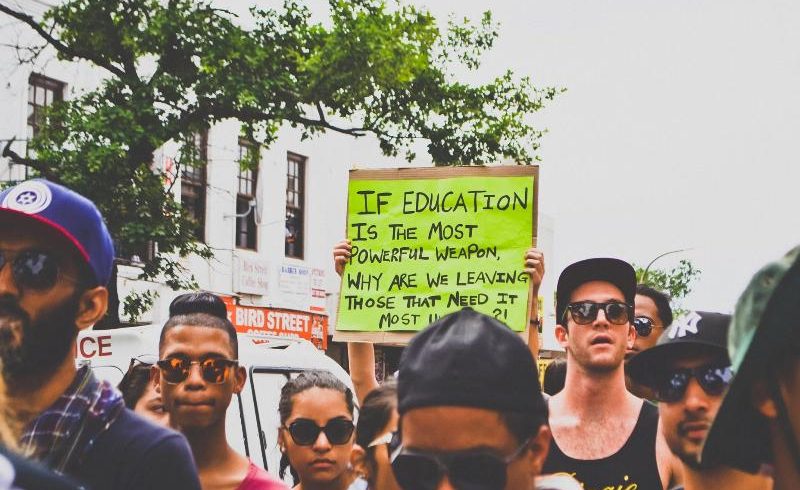Student groups last year secured a zero percent fee increase after weeks of demonstrations rocked the government, and had demanded a freeze on all fees until a commission into university funding was complete.

But Higher Education Minister Blade Nzimande gave universities the green light to raise fees for the 2017 academic year.
“Our universities face an extremely difficult financial situation,” Nzimande said at a press conference in Pretoria.
“The effects of last year’s moratorium on fee adjustments have added to these challenges… Starving our universities of funding is not the way to go.”
Nzimande recommended universities raise their fees “not above eight percent”.
He added the government would cover the increase for students from families earning less than 600,000 rand a year ($42,600).
Despite the cover for poorer families, students quickly rejected the minister’s announcement, staging protests in Johannesburg, Cape Town, Pretoria and elsewhere.
“This will only strengthen our resolve… government is not playing ball,” said University of Witwatersrand student Tshepo Mnguni in Johannesburg.
“We have no choice but to fight. We are not doing this for ourselves, we are doing this for future students, the millions who won’t be able to access education,” the 22-year-old told AFP.
Armed police blocked off all entrances into the university to prevent violence, as classes went on during the protest.
“We need to unite again and put more pressure on government,” said another student, 19-year-old Maria Gomez.
She described the decision to hike fees “as an insult by an arrogant government.”
University of Cape Town (UCT) cancelled all classes Monday ahead of the announcement, while students at Stellenbosch University, Pretoria University and Tshwane University of Technology also protested.
On September 6, the University of KwaZulu-Natal in Durban shut down for two weeks after unrest over fees, with students burning down several buildings and cars at its Westville campus.
Violent protests erupted at many South African universities last year, with several campuses temporarily shut down and riot police clashing with students outside parliament.
The issue of education fees ignited widespread frustration over a lack of opportunities for young South Africans, worsened by a weakening economy and high unemployment.
UCT Vice-Chancellor Max Price said failing to increase fees would result in hundreds of jobs lost, and reduce financial aid to poor students.
“Either we have to accept the decline in the kinds of universities we have and the funding for students, or we have to put up the fees to compensate,” he told state broadcaster SAB













